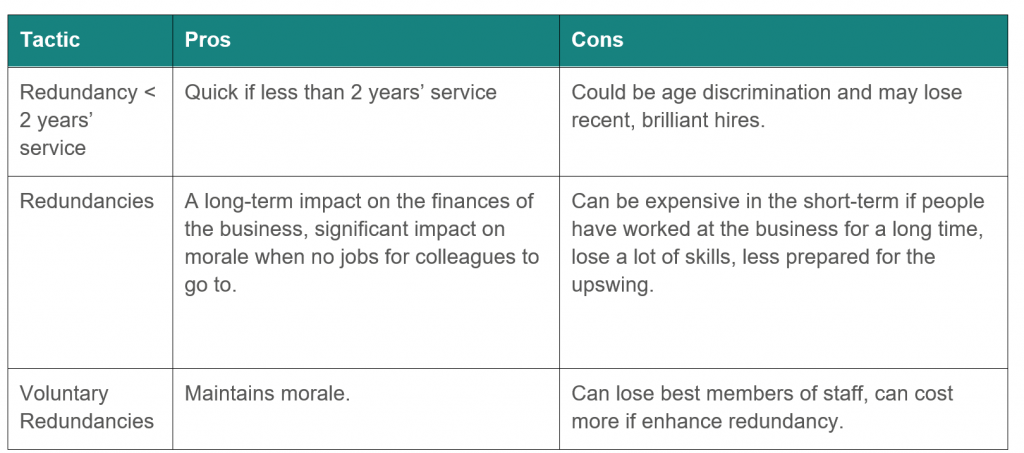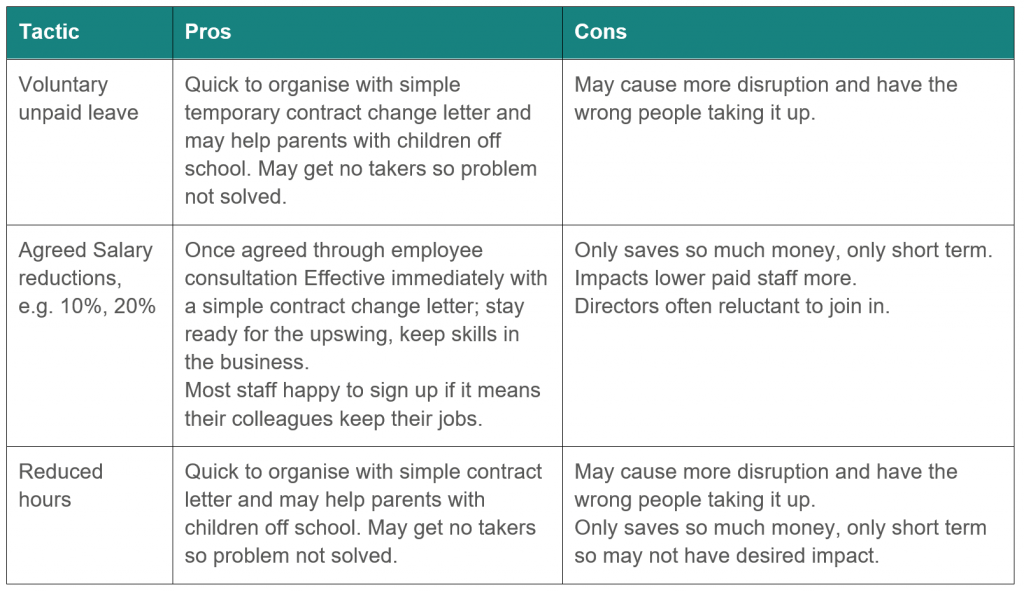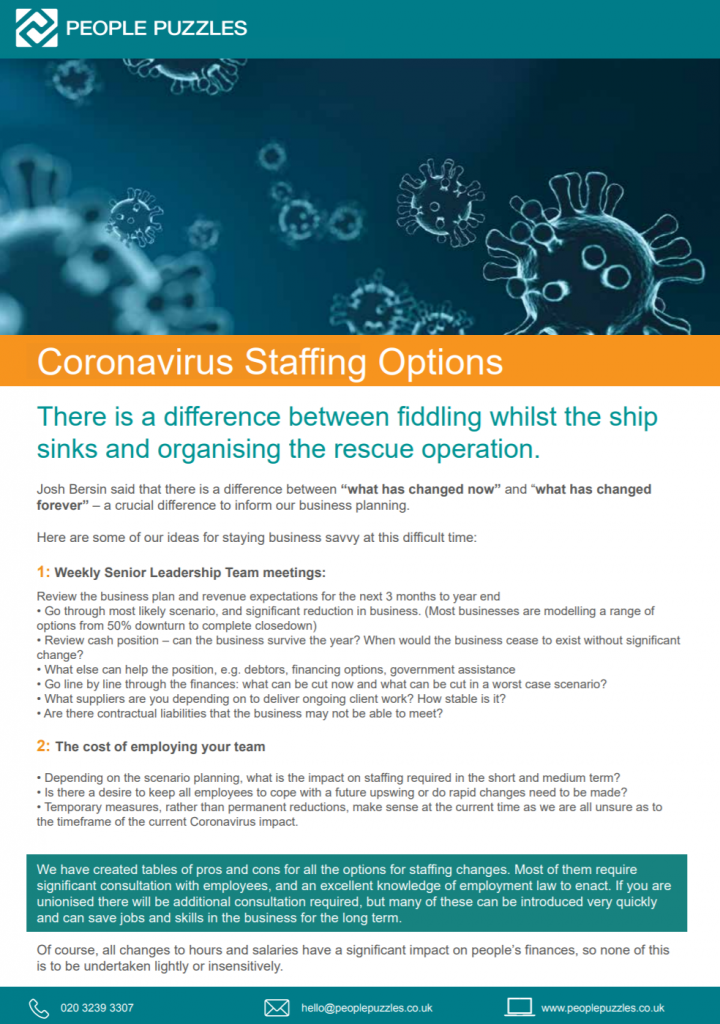Coronavirus Staffing Options
We have created a toolkit surrounding the pros and cons of all the options for staffing changes that you may consider during this time.
There is a difference between fiddling whilst the ship sinks and organising the rescue operation.
Josh Bersin said that there is a difference between “what has changed now” and “what has changed forever” – a crucial difference to inform our business planning.
Based on the work we are already doing with our current clients we are now able to offer a one day package to help you action plan for the next few months.
Here are some of our ideas for staying business savvy at this difficult time:
1. Weekly Senior Leadership Team meetings:
- Review the business plan and revenue expectations for the next 3 months to year-end
- Go through the most likely scenario and a significant reduction in business. (Most businesses are modelling a range of options from 50% downturn to complete closedown)
- Review cash position – can the business survive the year? When would the business cease to exist without significant change?
- What else can help the position, e.g. debtors, financing options, government assistance
- Go line by line through the finances: what can be cut now and what can be cut in a worst-case scenario?
- What suppliers are you depending on to deliver ongoing client work? How stable is it?
- Are there contractual liabilities that the business may not be able to meet?
2. The cost of employing your team
- Depending on the scenario planning, what is the impact on staffing required in the short and medium-term?
- Is there a desire to keep all employees to cope with a future upswing or do rapid changes need to be made?
- Temporary measures, rather than permanent reductions, make sense at the current time as we are all unsure as to the timeframe of the current Coronavirus impact.
Most of these changes require significant consultation with employees, and excellent knowledge of employment law to enact. If you are unionised there will be additional consultation required, but many of these can be introduced very quickly and can save jobs and skills in the business for the long term.
Of course, all changes to hours and salaries have a significant impact on people’s finances, so none of this is to be undertaken lightly or insensitively.
Permanent headcount reductions

Temporary via Contractual Clauses Enacted

Temporary Changes via Consultation and implemented with Employee Agreement

Other Temporary arrangements (may require consultation)
Other arrangements may include:
- Remove any overtime
- Change the operation to remove premium/night payments
- Freeze Pay – if an annual pay award is due – postpone it and explain why
- Cut non-contractual bonuses
- Cancel agency staff
- Don’t renew any fixed-term contracts
- Redeploy employees to busier department/alternative roles
- Not working or reduced hours with some additional pay to sweeten the leave
- Agree 3/4 pay now for 3 months and 1.25 pay for 3 months once the situation is resolved (if you are clear that business will recover)
- Stay on full pay but don’t work, and bank it as overtime to be worked later in the year
- Take holidays now so available later in the year (difficulty as employees can’t go abroad / socialise)
- Cut out employee perks e.g. free tea and coffee/free meals/gym membership etc
- Second to another business


